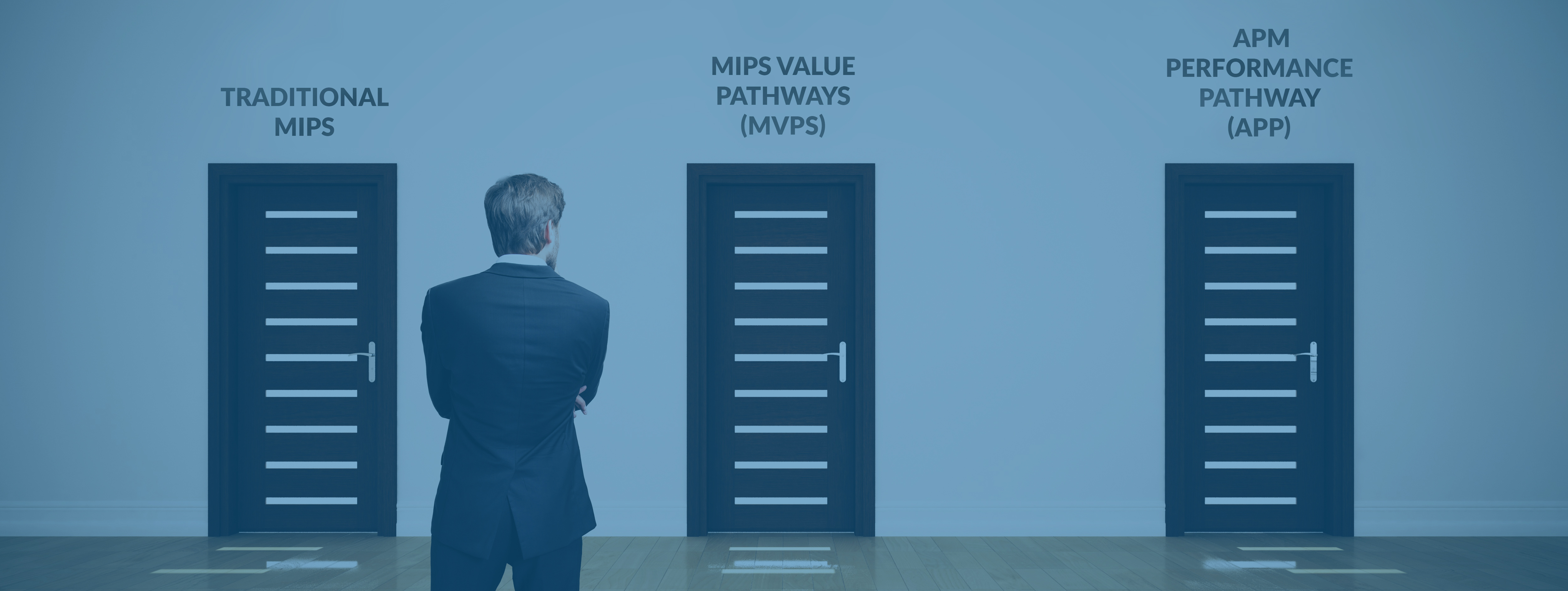If you are managing a Medicare Shared Savings Program accountable care organization (MSSP ACO), you have heard the mandate from the Centers for Medicare & Medicaid Services (CMS) to move to eCQM/CQM reporting, replacing the Web Interface reporting. You may also be aware of the significant pushback that ACOs, collectively and independently, have provided to CMS. At this year’s fall National Association of ACOs (NAACOS) conference, the tenor changed to accepting the move, optional in 2022 through 2024, but required in 2025.
Lauren Patrick

Recent Posts
Insights from the NAACOS Fall Conference On eCQM/MIPS CQM Reporting
Topics: ACO, APM Performance Pathway, Accountable Care Organization, MIPS CQMs, eCQMs
As you report your MIPS data, it can feel like a lot of work with little ROI for the last two years. But wait. Sometimes we need to step back and evaluate the bigger picture. While we often focus on "getting the job done", there are changes in the healthcare economy that are occurring that are strategic.
Topics: MACRA & MIPS, APMs, VBC, Value-Based Care
Why You'll Be in For a MIPS Shock - No More Bonus Points or Loopholes
On November 2, 2021, the Centers for Medicare & Medicaid Services (CMS) released the 2022 Physician Fee Schedule (PFS) Final Rule which governs MIPS and other quality payment programs. Anticipated changes were made to MIPS, making the program more challenging in 2022 and signaling additional changes to the program in coming years.
Topics: MACRA & MIPS, Quality Performance Category, IA Performance Category, Cost Performance Category, PI Performance Category, MIPS Value Pathways, 2022 PFS Final Rule
This Could Be Your First Year to Receive a MIPS Penalty. Here's Why.
With the release of the 2020 feedback report detailing the 2.2% maximum possible payment adjustment and the release of the 2022 Final Rule, CMS has demonstrated that MIPS will be both financially rewarding and challenging, in terms of reporting requirements, in 2021 and beyond.
Topics: Quality Performance Category, IA Performance Category, Cost Performance Category, PI Performance Category, 2022 PFS Final Rule
The NAACOS Fall 2021 Conference was the first live meeting that the Healthmonix team attended since HIMSS 2020 was cancelled in March of that year. It was certainly reinvigorating to meet in person, discuss the state of payment models, and hear from CMS regarding their vision.
Topics: CMS, ACO, Industry insights, 2021 PFS Proposed Rule
New Challenges Brought on by Changes to MIPS Threshold & Performance Categories
With the release of the 2020 feedback report detailing the 2.2% maximum possible payment adjustment and the release of the 2022 Proposed Rule, MIPS participants find themselves wrestling with lingering disappointment from participation in the program in previous years, and resistance to the idea that MIPS will be financially rewarding and challenging, in terms of reporting requirements, in 2021 and beyond.
This is the second in a series of blog posts on the 2020 payment adjustment and the 2022 Proposed Rule, that will address this sense of disappointment and show how the future of MIPS will contain much more rigorous program requirements and create greater financial rewards. To see financial and program success, you will need to be prepared to meet the new challenges. We have the guidance you need to succeed in 2021 and beyond.
Topics: MACRA & MIPS, Quality Performance Category, Cost Performance Category, 2022 PFS Proposed Rule
With the release of the 2020 feedback report detailing the 2.2% maximum possible payment adjustment and the release of the 2022 Proposed Rule, MIPS participants find themselves wrestling with lingering disappointment from participation in the program in previous years, and resistance to the idea that MIPS will be financially rewarding and challenging, in terms of reporting requirements, in 2021 and beyond.
Topics: MACRA & MIPS, COVID-19, 2022 PFS Proposed Rule
Registry Impact on Shared Savings in the APM Performance Pathway (APP)
For ACOs participating in the Medicare Shared Savings Program (MSSP), CMS is implementing rules in 2021 and 2022 for quality reporting which include a sweeping change. This change will require a new reporting approach, in order to aggregate data from electronic health record systems used across an ACO for all patients seen by any provider, regardless of payer or participation in the ACO. In a recent survey, nearly 75% of the ACO respondents indicated concern with the challenge of these requirements. The Web Interface reporting is being sunset, and ACOs need to devote attention to determining their strategy for transitioning quality reporting. Success will require thoughtful planning and experienced system implementation.
Topics: ACO, APM Performance Pathway, Medicare Shared Savings Program
As we move into 2021 and beyond, we see CMS putting some real teeth into the Merit-based Incentive Payment System (MIPS) program. This is the first year where we see more than two percent incentives possible. Exemptions and exclusions are narrowing. Participants in other value-based programs are being forced into MIPS reporting because of higher thresholds for exclusion and elimination of other reporting options.
Topics: MACRA & MIPS, MIPS Value Pathways, APM Performance Pathway
There has been much talk around MVPs in the CMS quality reporting arena. MVP means MIPS Value Pathway, and it’s a reporting framework that CMS is communicating as (a) the next evolution of MIPS and (b) a transition tool for getting to other alternative payment modules. As CMS continues to define and refine their vision of the MVPs, they have started to call the current framework 'traditional MIPS' to prepare for the inclusion of the MVP option. You’ll see this when you visit the QPP site. That said, how can MVPs affect MIPS?
Topics: MACRA & MIPS, CMS, 2021 PFS Proposed Rule, MIPS Value Pathways










